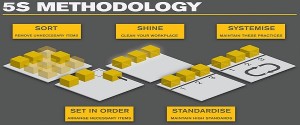An 8D report, also known as the Eight Disciplines problem-solving methodology, is a structured approach used in the business and manufacturing sectors to identify, correct, and prevent recurring problems. The purpose of the 8D process is to provide a systematic method for problem-solving and continuous improvement.
The eight disciplines are as follows:
- D1: Form a Team: Assemble a cross-functional team with the skills and knowledge necessary to address the problem.
- D2: Define the Problem: Clearly articulate the problem, specifying the issue, its impact, and any relevant background information.
- D3: Containment Actions: Implement interim measures to contain the problem and prevent its escalation, ensuring that it doesn’t affect customers or other processes.
- D4: Root Cause Analysis: Identify the root causes of the problem using tools such as cause-and-effect diagrams, 5 Whys, or other problem-solving techniques.
- D5: Corrective Actions: Develop and implement corrective actions to address the root causes identified in the previous step.
- D6: Verify Corrective Actions: Validate the effectiveness of the corrective actions through testing and monitoring.
- D7: Prevent Recurrence: Implement measures to prevent the problem from recurring, such as updating procedures, training, or process changes.
- D8: Closure and Recognition: Summarize the lessons learned, formally close the 8D report, and recognize the contributions of the team members.
The 8D methodology is widely used in quality management and continuous improvement processes. It provides a systematic and disciplined approach to problem-solving, helping organizations address issues in a structured manner and prevent their recurrence.
8D training (8D-Root Cause Analysis)




